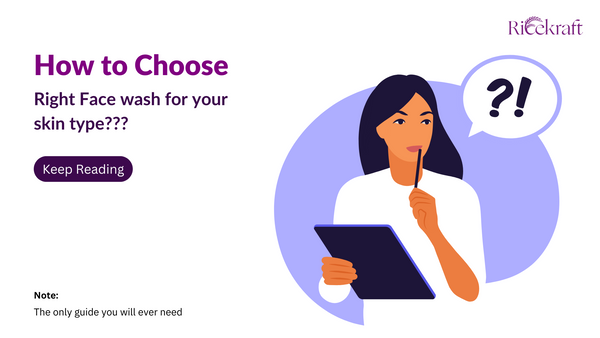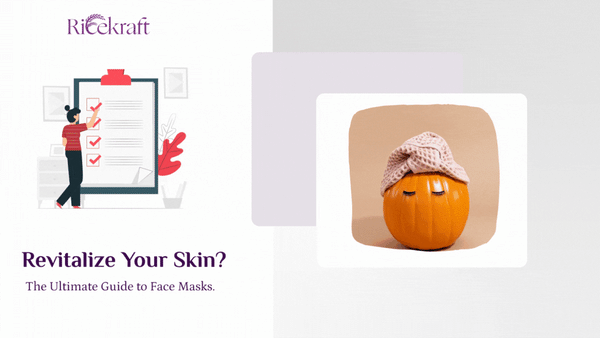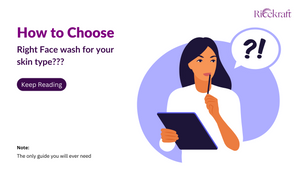Revitalize Your Skin: The Ultimate Guide to Face Masks."

Face masks have become a ubiquitous part of our lives, especially in recent times. What was once primarily a skincare ritual has taken on a whole new level of importance. But what are face masks, and why are they so popular?
Let's dive beneath the surface and unmask the incredible benefits of these skincare essentials.
The Many Faces of Face Masks

Face masks are beauty products designed to be applied on the face, left to sit for a specified period, and then rinsed or peeled off. They come in various forms, catering to different skin types and concerns. Here are some common types:
1. Sheet Masks:
These are pre-cut fabric masks soaked in a serum. They're convenient and great for a quick hydration boost.
2. Clay Masks:
Typically made with natural clay, these masks help absorb excess oil and impurities. Ideal for those with oily or acne-prone skin.
3. Cream Masks:
Creamy in texture, these masks are hydrating and nourishing. They're perfect for dry or sensitive skin.
4. Gel Masks:
Gel masks are cooling and soothing. They're excellent for calming irritated or sunburned skin.
5. Peel-Off Masks:
Applied as a liquid that dries into a peelable film, these masks help remove dead skin cells and unclog pores.
The Benevolent Benefits:

1. Deep Cleansing:
Face masks, especially clay and peel-off variants, can deeply cleanse your skin. They draw out impurities, unclog pores, and help prevent breakouts.
2. Hydration Boost:
Sheet masks and cream masks are champions of hydration. They infuse your skin with moisture, leaving it plump and radiant.
3. Exfoliation:
Peel-off and some gel masks offer gentle exfoliation. They remove dead skin cells, promoting a smoother complexion.
4. Acne Control:
Clay masks are renowned for their ability to control acne. They absorb excess oil, reduce inflammation, and prevent further breakouts.
5. Soothing Sensation:
Gel masks are like a spa day for your face. They cool and soothe irritated skin, making them perfect for post-sun skincare.
6. Anti-Aging Benefits:
Some masks contain ingredients like antioxidants and collagen, which can help reduce the signs of aging and boost skin elasticity.
7. Stress Relief:
The process of applying and waiting for a face mask can be a relaxing ritual. It's a moment of self-care that reduces stress and rejuvenates your mind.
8. Even Skin Tone:
Certain masks target uneven skin tone and dark spots. They can help fade hyperpigmentation over time.
9. Enhanced Absorption:
Using a mask before your regular skincare routine can enhance the absorption of subsequent products, like serums and moisturizers.
10. Radiant Glow:
Ultimately, face masks impart a radiant glow to your skin, making you look refreshed and revitalized.
Tips for a Mask-tastic Experience:
To make the most of your face mask journey, keep these tips in mind:
1. Choose masks that suit your skin type and concerns.
2. Always cleanse your face before applying a mask.
3. Follow the recommended duration for leaving the mask on.
4. Don't overuse masks; once or twice a week is usually sufficient.
5. After removing the mask, apply your regular skincare products.
6. Stay consistent; the benefits of face masks become more evident with regular use.
Conclusion:
Face masks are much more than skincare trends; they're powerful tools for achieving and maintaining healthy, radiant skin. So, whether you're looking for deep cleansing, hydration, or a moment of relaxation, there's a face mask out there that's ready to reveal your best face forward.










